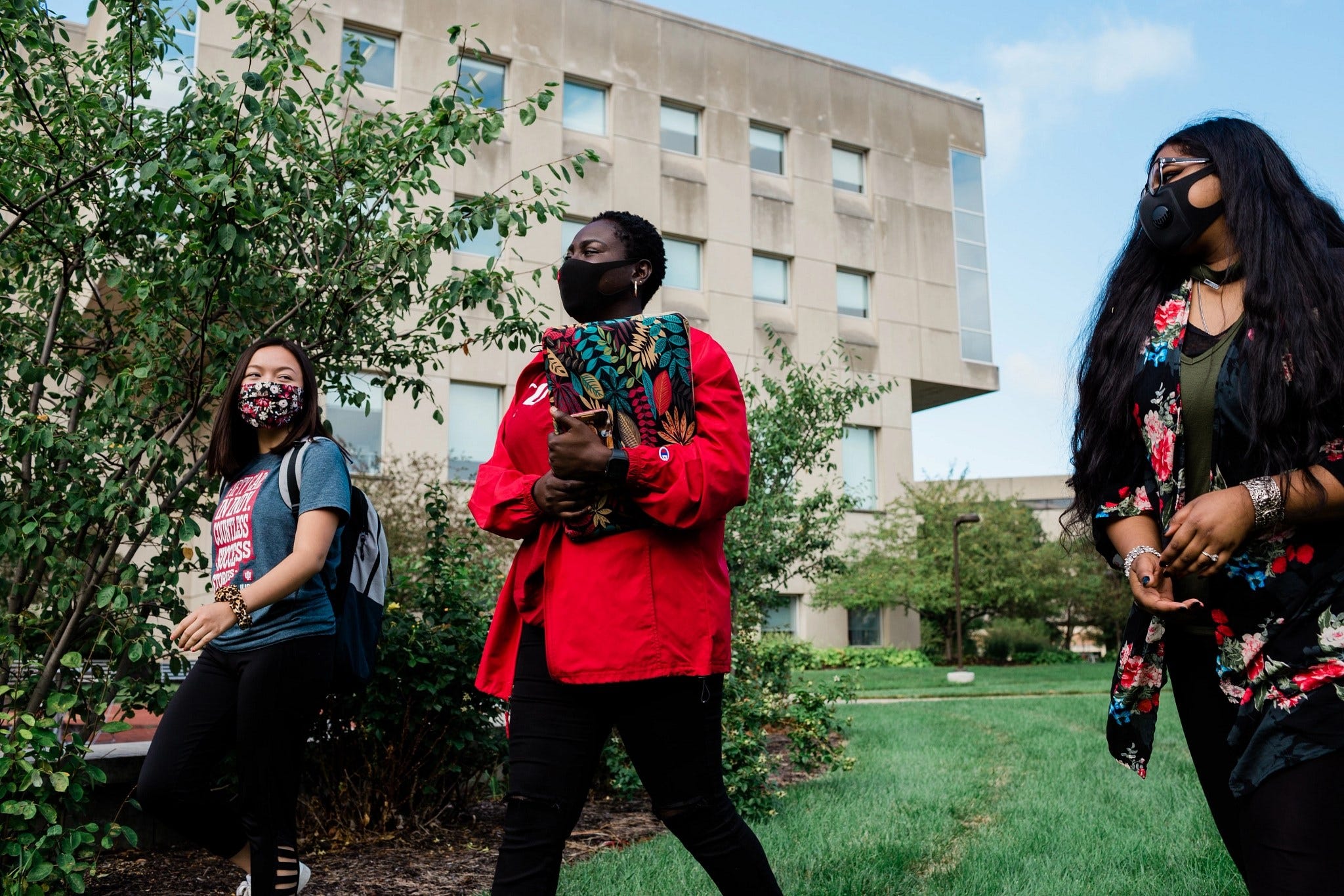Universities Ink ‘Playbook’ For COVID-19 Strategies
 University leaders say campuses "kept the prevalence of infection quite low throughout the fall semester
University leaders say campuses "kept the prevalence of infection quite low throughout the fall semester
Subscriber Benefit
As a subscriber you can listen to articles at work, in the car, or while you work out. Subscribe NowWhile much of the country and the state of Indiana are struggling to manage the pandemic, local life sciences leaders point to the state’s research universities as leading the charge—creating the playbook for how to mount an effective response to COVID-19. Very early in the pandemic, Indiana University, Purdue University and the University of Notre Dame chose to spearhead their campuses’ response, so they could better control safety and not drain the resources of their local communities and state at large. The three universities have strategies to diagnose their populations and control outbreaks; school leaders acknowledge their expertise, ability to control resources and nimble nature play a role—but more importantly is the schools’ will to make it happen.
“I’m still disappointed at how so much of the country, when we say, ‘Well, you can do this,’ seems to respond with, ‘Oh, well, that’s just too hard. We can’t do that.’ And I’m like, ‘That’s what you said six months ago, that’s what you said nine months ago, and some people have done it. Just do it. We’re not out of this yet.’ Still, there’s just a lot of that attitude,” says IU Associate Dean for Research Mentoring Dr. Aaron Carroll. “What Purdue did building a lab, what IU did building a lab and massively increasing testing capacity—I really want to stress, it’s not like we invented this. We’re learning from each other, we’re enacting a playbook, and we’re doing what other schools in other places have done. Indiana could do this.”
Carroll, who is also a professor of pediatrics at the IU School of Medicine, wrote in a recent opinion article that IU, “and other schools using similar approaches, kept the prevalence of infection quite low throughout the fall semester, even as case counts rose dramatically in the state.” During the first few weeks of the pandemic, each university worked individually on their mitigation efforts, but soon realized their combined knowledge would be a powerful force.
“After about a month into it, trying to figure out what each of us needed to do, we started to come together and started to share best practices—such as, ‘What are you doing? How are you doing this?’” says Purdue Research Foundation Chief Innovation and Collaboration Officer David Broecker. “What was amazing and interesting about all the [Indiana] research universities was this notion of working together and sharing best practices on a weekly basis. We all have to do it our own way, because each of our campuses is different in scope, size and living conditions, but we’re also willing to roll up our shirtsleeves and work together. I think that really makes the state of Indiana special.”
The state’s life sciences initiative BioCrossroads helped encourage the collaborative effort, and recently hosted a virtual event for the universities to discuss their COVID-19 responses and what they’ve learned. The institutions’ management of the pandemic has been staggering; they’ve built and controlled their own testing mechanisms, together performing close to 400,000 COVID-19 tests, stood up multiple labs that can process up to 50,000 tests per week and created information technology tools such as websites and dashboards to translate big data into meaningful insights. (IU dashboard, Purdue dashboard and Notre Dame dashboard)
“What stands out to me about IU’s response is the overall massive commitment of resources, will and personnel to this endeavor,” says Carroll. “It blew me away in the beginning and blows me away still.”
Carroll also notes IU’s overall testing and safety measures will cost about $700 per student, showing that protection measures are possible on a realistic budget. While it’s a significant expense for universities, state and federal aid programs are also helping absorb the cost.
Spring semester is now underway with students back on campus; university leaders are considering the lessons learned from the fall semester as they execute their spring battle plans—with one certainty: the ever-changing nature of the pandemic.
“The spring semester is much more complex. In the fall, everyone was starting from the same point. Now, in the spring, some students have been positive…a small cohort of our [health and pharmacy] students have been vaccinated…as well as some faculty and staff,” says Broecker. “It’s much more complex in terms of the diversity of who’s been exposed previously and whether or not they’ve been vaccinated, so the logistics and information management of all of that is much more complex than it was in the fall.”
“One of the very, very important lessons we take to heart,” he continues, “is you have to follow the science. You’ve got to follow where COVID is, where the pandemic takes you and try to stay ahead of it. I think there’s going to be light at the end of the tunnel come the fall.”
“I do think as we get more and more people vaccinated that we will see things improve, and fall of 2021 is going to look better than fall of 2020,” says Carroll. “It won’t be fall of 2019, and that’s okay. We need to just keep getting better.”
Carroll says IU is now applying the lessons it learned in the fall to the current spring semester.
Carroll says the level of commitment from people helping with the management efforts “is the kind of thing that restores your faith in humanity.”
Broecker says the major universities have also been sharing best practices with the state’s smaller colleges.

